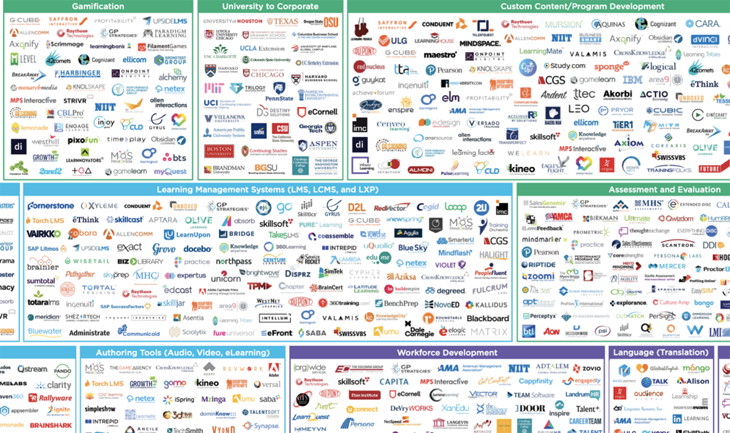Selecting the most effective Understanding Management System for Your Company
Selecting the optimal Learning Management System (LMS) for your company is a complex decision that needs cautious factor to consider of different components. From specifying accurate understanding objectives that reverberate with your tactical vision to assessing individual experience, each variable plays a pivotal role in the total performance of the system. Furthermore, comprehending integration capabilities and ensuring scalability for future demands can not be ignored. As organizations pursue performance and growth, the choice of an LMS comes to be significantly considerable. What are the important considerations that can influence your decision-making procedure?
Define Your Understanding Objectives
Defining clear understanding goals is vital for the successful application of a Knowing Monitoring System (LMS) These objectives work as a roadmap, guiding the advancement of content, evaluations, and overall educational techniques within the LMS. By developing particular, quantifiable, achievable, appropriate, and time-bound (CLEVER) goals, organizations can make sure that the knowing experiences are lined up with their critical objectives and learner demands.
Effective knowing purposes should encapsulate what learners are anticipated to recognize or be able to do upon conclusion of a training course or training program. This clarity not only aids in material development yet additionally helps with the examination of student progression and the total efficiency of the LMS. LMS SG. Well-defined purposes enable stakeholders to evaluate whether the selected LMS functionalities and functions line up with their instructional goals.
Assess Customer Experience
Once finding out goals have been established, evaluating customer experience becomes a crucial next step in choosing a suitable Understanding Monitoring System (LMS) User experience incorporates the general fulfillment and convenience with which learners connect with the system. A well-designed LMS needs to help with instinctive navigation, making sure that individuals can situate courses, materials, and support effortlessly.
To analyze individual experience, think about conducting usability testing with a depictive example of end-users. Key factors to evaluate include the LMS's user interface style, access functions, mobile compatibility, and the clarity of directions supplied.
Furthermore, review the availability of assistance sources, such as tutorials and help facilities, which can improve the individual experience. The responsiveness of client assistance is additionally essential; timely assistance can significantly mitigate disappointments that individuals might come across. Eventually, selecting an LMS that prioritizes user experience not only enhances the learning process but likewise cultivates higher engagement and contentment among students.

Evaluate Integration Abilities
Identifying the value of seamless functionality, reviewing combination abilities is critical when selecting a Discovering Monitoring System (LMS) A reliable LMS should help with interoperability with existing systems, such as Human Source Monitoring Solution (HRMS), Consumer Partnership Monitoring (CRM) platforms, and other educational devices. This integration enhances information circulation, lowers administrative worries, and makes sure a natural knowing environment.
When analyzing an LMS, take into consideration the sorts of assimilations provided. Seek my latest blog post Application Programs Interfaces (APIs), Single Sign-On (SSO) capabilities, and pre-built adapters that improve integration procedures. In addition, validate the LMS's ability to integrate with third-party tools, such as content collections or assessment platforms, which can significantly improve the discovering experience.

Take Into Consideration Scalability and Adaptability
As organizations evolve, the ability of a Discovering Monitoring System (LMS) to scale and adapt becomes significantly essential. A scalable LMS can fit growth in user numbers, course offerings, and web content without endangering performance or customer experience. As businesses increase, whether via enhanced workers, brand-new areas, or diversified training requirements, the LMS ought to effortlessly expand together with these modifications.
Adaptability is similarly crucial; an efficient LMS must sustain numerous learning techniques, such as online, blended, and mobile discovering. This versatility allows companies to react rapidly to arising trends in training and development, ensuring that they can supply pertinent and engaging understanding experiences - Canvas Singapore. In addition, the system must supply personalized features, allowing companies to tailor the LMS to their specific needs and branding
Furthermore, a versatile LMS ought to incorporate quickly with existing tools and systems, helping with a natural discovering community. Thus, when selecting an LMS, it is important to analyze not only its current capacities however additionally its possible to expand and adjust in alignment with the organization's calculated goals and progressing finding out needs. This foresight can considerably enhance the lasting practicality of the chosen LMS.
Testimonial Expenses and Budgeting
When examining a Knowing Monitoring System (LMS), evaluating expenses and budgeting is important to ensure that the financial investment lines up with the organization's tactical goals and monetary abilities. Organizations should begin by recognizing the total expense of ownership, that includes licensing costs, application expenses, maintenance, and any kind of extra expenses such as training and technical support.
It is essential to contrast numerous LMS alternatives, as pricing models can differ substantially among suppliers. Some systems may use a subscription-based design, while others might charge a single cost. Organizations ought to additionally think about the scalability of the LMS; as they expand, the cost framework might change, affecting lasting budgeting.

Verdict
Choosing a proper Discovering Administration System (LMS) is crucial for attaining business understanding purposes. Inevitably, the ideal LMS offers as an essential tool in promoting an effective discovering atmosphere and driving organizational success (LMS Singapore).
Selecting the optimal Learning Management System (LMS) for your company is a multifaceted decision that needs careful consideration of different elements.Specifying clear understanding purposes is crucial for the over at this website effective execution of an Understanding Administration System (LMS)Once discovering objectives have actually been developed, assessing user experience comes to be an essential next action in choosing a suitable Understanding Administration System (LMS)As organizations advance, the capability of a Learning Monitoring System (LMS) to scale and adjust ends up being increasingly crucial.Choosing an ideal you can find out more Discovering Management System (LMS) is crucial for accomplishing business knowing purposes.